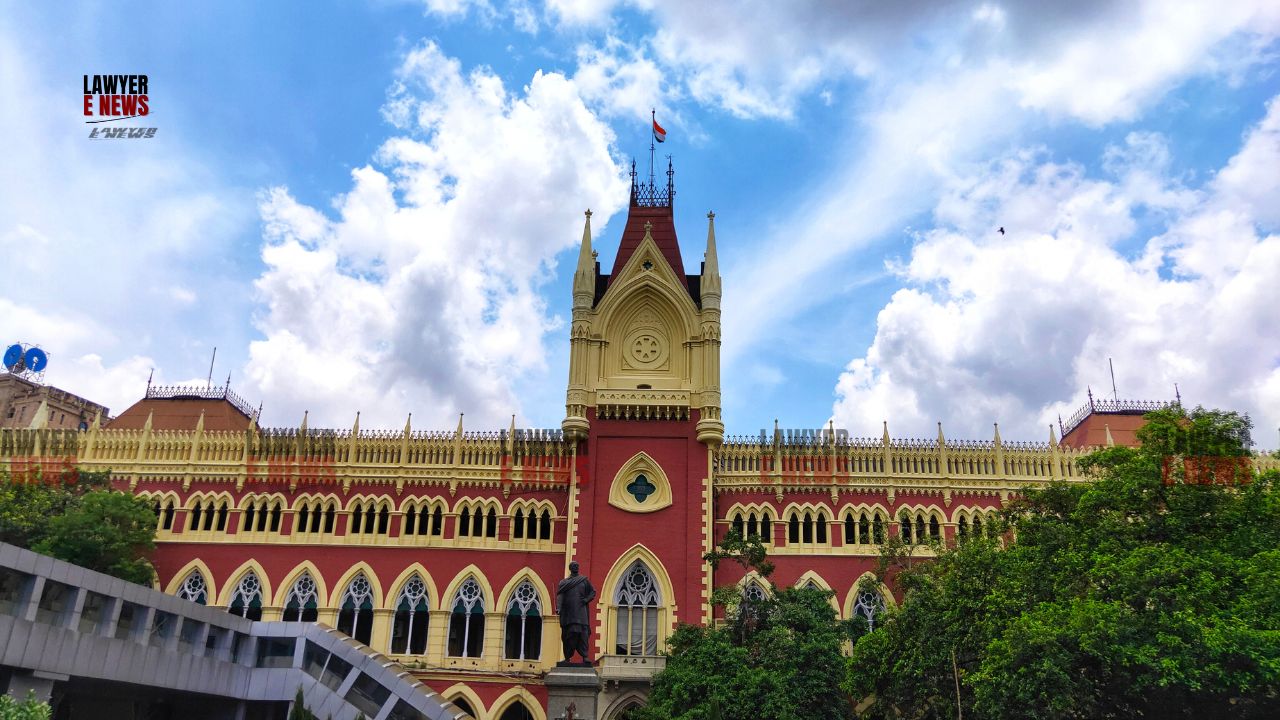-
by sayum
20 February 2026 8:24 AM



“When Complainant Herself Admits No Cruelty Or Hurt, Continuation Of Criminal Case Is Abuse Of Process” — Calcutta High Court, through Dr. Justice Ajoy Kumar Mukherjee, delivered a significant judgment, wherein the Court quashed criminal proceedings under Sections 498A, 406, 323, and 34 IPC, noting that the complaint was a retaliatory action in response to a divorce suit filed by the husband.
The Court held that the criminal proceeding was a classic abuse of the process of law, devoid of any prima facie material, with the complainant’s own admissions in the matrimonial suit negating her allegations.
“Section 498A IPC Requires Specific Allegations Of Cruelty Likely To Drive A Woman To Suicide Or Cause Grave Injury — Mere Matrimonial Discord Cannot Attract Criminality”
At the heart of the dispute was an FIR filed by the wife after she received notice of her husband’s divorce petition. The Court scrutinized whether the allegations in the FIR and charge sheet satisfied the ingredients of Section 498A IPC.
Quoting the statute, the Court emphasized:
“Section 498A applies only when the husband or his relatives subject a woman to cruelty, which must be of such a nature as is likely to drive the woman to commit suicide or to cause grave injury or danger to her life, limb, or health.”
The Court observed:
“Neither the FIR nor the charge sheet contains any allegation of conduct that could be said to cause grave injury or drive the complainant to suicide. The essential ingredients of Section 498A IPC are conspicuously absent.” [Para 10]
Referring to the complainant’s own deposition in the matrimonial suit, the Court noted a striking admission:
“She categorically admitted that she was not tortured by her husband ever. She further stated that she could not recollect having initiated this very criminal proceeding against the petitioners.” [Para 12]
“Bald, Vague Allegations Without Specifics Cannot Sustain An Offence Under Section 323 IPC”
Addressing the allegation of voluntarily causing hurt under Section 323 IPC, the Court found the accusations were generic and devoid of material particulars.
The judgment squarely stated:
“It does not disclose on which date and at what time the petitioners committed any such offence, nor does it specify the role played by each of them in the alleged commission of the offence.” [Para 13]
It emphasized that “mere reproduction of legal provisions without factual foundation is insufficient to sustain criminal charges.”
“When Admission Is Of Sterling Quality, Court Can Act On It Even At The Stage Of Quashing” — Evidentiary Value Of Admissions Affirmed
The Court placed heavy reliance on the complainant’s own admissions in the matrimonial proceedings, where she stated under oath that “her husband never tortured her” and that “she had no memory of initiating the present criminal complaint.”
Referring to well-established principles under Section 145 of the Indian Evidence Act, 1872, the Court observed:
“Statements made in evidence shall remain for all purposes unless rebutted. They can be validly relied upon at the quashing stage if unimpeached.” [Para 15]
Quoting 72 CWN 867, the Court reiterated:
“Statements made in prior judicial proceedings, if unimpeached, are binding and can be relied upon to prevent abuse of process.”
“Criminal Law Cannot Be Weaponized To Settle Matrimonial Scores” — High Court Deplores Misuse Of 498A
The Court was categorical in its condemnation:
“An overall analysis of the documents and materials collected during investigation clearly suggests that the allegations of ‘cruelty’ under Section 498A and ‘voluntarily causing hurt’ under Section 323 are imaginary, concocted, and have been created as a counterblast to the divorce proceeding initiated by the husband.” [Para 14]
It further added:
“Continuation of this proceeding would amount to an abuse of the process of the court and defeat the ends of justice.” [Para 16]
Declaring the criminal proceeding as an abuse of process, the High Court conclusively held:
“No case is made out against the present petitioners, and the pendency of the proceeding is an abuse of the process of the court.” [Para 16]
Accordingly, the Court ordered:
“CRR 1382 of 2018 is allowed. The entire criminal proceedings in GR Case No. 1495 of 2012 arising from Barasat P.S. Case No. 508 of 2012 dated 20.03.2012 under Sections 498A/406/323/34 IPC, pending before ACJM, Barasat, stand quashed.” [Para 17]
There was no order as to costs.
This judgment is a reaffirmation of the principle that criminal law cannot be permitted to be misused as a tool for vengeance in matrimonial disputes. The Calcutta High Court has made it abundantly clear that “vague, omnibus allegations unsupported by specific material cannot sustain charges under Sections 498A or 323 IPC”, particularly when the complainant herself admits under oath that no cruelty occurred.
The judgment also reinforces the power of the High Court under Section 482 CrPC to intervene and quash proceedings where continuing them would constitute a “gross miscarriage of justice and an abuse of judicial process.”
Date of Decision: 01 July 2025
